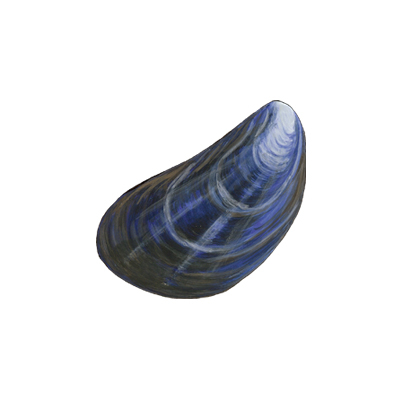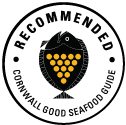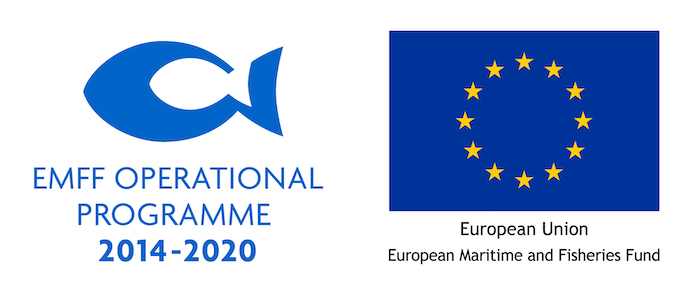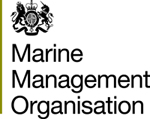

Delicious and good for you, farmed mussels are a great choice of Cornish seafood.
Blue mussels are found naturally growing all around Cornwall's coast, where they are occasionally picked, but not a major fishery. There are now several companies farming mussels in Cornwall's estuaries and bays. This practice is very environmentally friendly as the mussels grow naturally, feeding on passing plankton. Unlike fish farming where large amounts of feed is used and polluting waste is created mussels have a minimal impact and the farms actually create sheltered habitat for other species. Always ask for Cornish farmed mussels.
1.2 tonnes of wild mussels were landed to Cornish ports in 2021.
Updated October 2017

Cornwall
Farmed mussels are the best choice as the method of farming is environmentally friendly and creates habitat that benefits other species. Farmed mussels are purified before sale and are a very high quality local product. Rating is provided using the MCS aquaculture ratings methodology.
Learn more
Cornwall
Wild mussels can be hand collected in many areas of Cornwall. It is very important that they are commercially purified before being eaten.
Learn moreCornwall Good Seafood Guide rates fish on sustainability using a scale of 1 to 5.
1, 2 and 3 are recommended, Fish to avoid are rated 5.
We use the system devised by the Marine Conservation Society (MCS) so our scores are comparable with the scores produced by MCS for the UK and fisheries from all around the world. For more information on scoring click here.
Mussels are fast growing shellfish that attach to a substrate using strong and sticky byssus threads. Mussels are bivalve molluscs meaning they have two shells. Mussels are filter feeders and use a fine net like gill system to capture tiny planktonic plants and animals to feed on.
Mussel farmers collect larval mussels (known as spat) naturally in our bays and estuaries. Natural populations of mussels are healthy and farming doesn't affect these populations at all. Populations of mussels on our rocky shore in some areas are exploited by hand collection. At the present time Cornwall Inshore fisheries and Conservation Authority do not know of any areas where this practice is depleting stocks but they are responsible for monitoring this situation.
Farmed mussels need no managment in terms of stock protection as described above. Hand collection of mussels is currently not manged to a high degree in areas where the public have rights to fish. Water quality in which mussels grow in has a major influence on the quality of the mussels. For this reason all mussels sold for human consumption have to be purified using ultraviolet sterilization before sale. The Environmental Health Authority closely monitor water quality and ensure that mussels offered for sale to the public have been appropriately purified. If you hand collect mussels for your own consumption avoid collecting them from polluted areas and avoid collecting during summer months as during this time there is more risk of the mussels being contaminated with toxic microalgae.
Mussels are hand gathered all around our coast but the majority of mussels offered for sale are farmed in St Austel bay, the river Fal, the Fowey river and the Camel estuary. If you go foraging for mussels be aware that If you should avoid collecting them from polluted areas and avoid collecting during summer months as during this time there is more risk of the mussels being contaminated with toxic microalgae. Only collect during months with an r in the name.






Cornwall Good Seafood Guide is underpinned by the Marine Conservation Society (MCS) Good Fish Guide. The first UK consumer guide to sustainable seafood. For more information visit www.fishonline.org
Cornwall Good Seafood Guide is here to help us all make sustainable seafood choices. Choices that will help us keep the oceans healthy and Cornish fishers' futures safe. This website is funded by Cornwall Wildlife Trust. If you would like to make a meaningful difference to the health of our oceans, please consider making a donation to the Cornwall Wildlife Trust Ocean Emergency fund. Your donation will help safeguard these remarkable environments, ensuring that they continue to thrive for generations to come. Together, we can be stewards of the seas and champions for a healthier, more sustainable future.